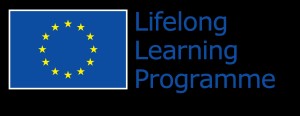Wednesday 25th April was the occasion of the first LINCS PGR Symposium. Over the course of the day, nine post-graduates presented papers to an audience of their peers, lecturers and professors from within the department. Reactions were universally positive, succinctly summarised by this tweet by @HW_LifeinLINCS:
Incredibly insightful and thought-provoking presentations.
Contributors ranged from those who had only recently started their PhD journey, to two who are busy writing up their theses with a view to submitting the finished works at the end of the summer. Research interests were grouped in four panels: translation, language and identity, sign language interpreting, and spoken language interpreting. Sites of research ranged from the Heriot-Watt University classroom to Faroese fish-processing factories, by way of theatres and mental health clinics, court-rooms and police custody suites, Google translate and the Galician community in London.
The papers delivered on the day were as follows:
Paola Ruffo: Literary Translators’ perceptions of their role and attitudes towards technology in contemporary society
Nga-Ki Mavis Ho: Academic translation from English into Chinese: Increasing awareness and handling of academic rhetoric by the introduction of the Graduation system
Elisabeth Holm: New Speakers of Faroese and the Sociolinguistics of Labour Market Access and Participation
Michael Richardson: Deaf and hearing theatre – creating an intercultural third space
Alex Dayan- Fernandez: Reinventing transnational networks: Contemporary language activism, linguistic ideologies, and cultural identity (re)constructions of the Galician diaspora in London
Emmy Kauling: “He’s a professional *something*” – Co-constructing professional identities through interpreted professional discourse.
Christopher Tester: Perceptions of the Role and Function of Deaf Interpreters Working in the Court of Law
Rob Skinner: Ap-proximately there: Video-mediated interpreting services at Police Scotland
Natalia Rodríguez Vincente: Rapport management in interpreter-mediated mental healthcare encounters: a shared responsibility?
Inevitably you can find more information about all these papers on Twitter – post-graduates can be active tweeters! Look for #HWPGRsymp18.
The value of the day lay not only in the opportunity for students to present their papers, but also in the responses those papers stimulated. Each presentation was followed by lively questioning and debate and the day was notable for the supportive and collaborative atmosphere created by all the participants. Post-graduates were inspired to think about new aspects of their work, and everybody developed greater insight into the breadth of interesting research that is being carried out across the department. Importantly, we were able to make links between individual research projects that will lead to further discussion where interests or methods overlap.
In summary, the PGR Symposium was an important and successful experience for all involved. There have already been calls for it to become a regular feature of the LINCS calendar, perhaps twice a year, to ensure all PGRs have a chance to present their work in the safe environment that the symposium offers. Personally, I hope not to be here for the next one (I’m one of those working towards submission of my thesis in a few months), but I very much look forward to seeing my own Twitter feed filled by photographs and summaries of the research undertaken by future cohorts of LINCS PGRs.
Michael Richardson
LINCS PGR Representative









